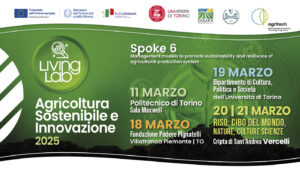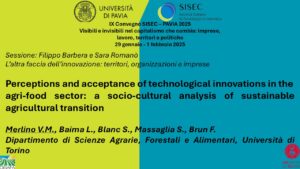Italy’s farming industry contributes about €35 billion to Italy’s gross domestic product (2.2% of the total), but production volumes have been declining for years. Italy has recently lost its European leadership to France in terms of agricultural added value and has slipped from second to third place for production value, behind France and Germany.
Increased costs due to inflation, reduced public funding, intense droughts and water scarcity are to blame for decreased production: 2022 and 2023 were respectively the hottest and driest year ever registered in the country. Farmers, whose incomes are falling, have joined their colleagues across Europe in street protests during recent months. Among other things, they are concerned about the EU climate policies designed to mitigate climate change. The EU wants to reduce the burden that agriculture places on the environment: In Italy, for example, farms contribute 7% of the total country’s greenhouse emissions and use more than 50% of available water. Farmers fear that measures to curb carbon emissions and pesticides use will be costly for them.
Amid the current crisis, the National Research Centre for Agricultural Technologies (Agritech) aims to bring innovative solutions for helping both farmers and the environment. With an estimated budget of €477 million, Agritech is the biggest of the five national centres launched in 2023 with funding from the EU’s Next Generation Europe programme. It will eventually have about 2,000 researchers, including 300 new PhDs and postdocs.“Our centre will offer farmers and agri-food companies a unique reference point for research and technologies in agriculture,” says Matteo Lorito, Rector of the University of Naples Federico II, and president of the Agritech Foundation, the hub coordinating the ten spokes of the centre. The consortium groups 51 partners, including 28 universities and major companies, such as Nestlé and Bonifiche Ferraresi.
“This is an opportunity to bring Italy at the forefront of agricultural research and solutions in Europe and worldwide,” says Danilo Ercolini, microbiologist and scientific director of the Agritech foundation in Naples.
One of the research pillars of the centre, and the focus of a spoke led by the National Research Council (CNR), is the use of genetics to develop crops, livestock, and microbes with better resilience to extreme climate and that use fewer resources. Stefania Grillo, a geneticist at the CNR Institute of Biosciences and Bioresources in Naples studies tomato varieties that don’t need irrigation. Italy is currently the second largest producer of processing tomatoes in the world after the United States, but future water scarcity may cause production levels to drop by nearly 20% by 2050.“If we can identify the regulatory genes that reduce tomatoes’ need of water by 10%, we could help Italy maintain its leadership in canned tomatoes while using less resources,”says Grillo. She has identified and characterized some genes that regulate water intake and she can now make specific changes into plants’ DNAs using new genomic techniques (NGTs) such as CRISPR/CAS 9.
Genetics is also important for a spoke on intensive livestock systems, led by Tuscia University in Viterbo. Livestock emissions have been slowly decreasing in the last decade, thanks to more efficient production systems, but farming animals is still responsible for about 80% of all agricultural emissions of methane and ammonia.“To curb cattle emissions we need to start measuring individual methane levels, while most carbon footprint analyses are now based on models,”says Nicola Lacetera, an animal scientist and spoke coordinator..
The centre’s researchers are testing prototypes for direct measurements of emissions as well as tools for indirect measurements, such as mathematically extracting emissions from the chemical composition of fatty acids in the milk of sheep and cows. Another aim is to find natural remedies from plants to make animals healthier and more resistant to diseases and heat, thereby reducing the use of antibiotics.
One research spoke is entirely dedicated to collecting images from satellites and drones and analysing them with artificial intelligence. Remote images can give insights into soil hydration, crop health, and the presence of weeds that need to be eradicated. Such data may allow farmers to adopt localized treatments thereby reducing resource use and environmental impact.
The main challenge for the centre, according to Ercolini, will be to transfer the innovations resulting from new research and convince farmers to adopt them.“Italy’s agriculture is lagging behind in technology adoption” he says. Apart from few big farms, the majority of small ones, mostly in the south, can’t adopt new technologies. “Their priorities are day-to-day issues, such as supply and productivity,” adds Ercolini. The centre is investing about €80 million in technology transfer initiatives. It set up an Agritech Academy in Naples that trains 40 students per year to become consultants for farmers on new technologies. In July 2023 the major universities of the centre launched Farming Future, a National technology transfer hub that, over the next 3 years, will fund 20 prototype technologies and 18 start-ups with a total budget of €20 million. The centre is also launching partnerships between universities and farms that aim to co-create and test experiments in the farms. “One way or another, we need to bring innovation to the farmers,” says Ercolini.















